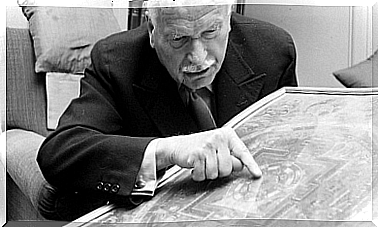Implications Of Chaos Theory, Or “The Butterfly Effect “
We have probably all heard of the butterfly effect. It is the essence of chaos theory. The implications of chaos theory were first defined by James York and TY Li in 1975 and remind us of something important. The world does not follow a predictable pattern. Chaos is a part of our lives whether we like it or not. There are small spaces where changes occur, and it is impossible to predict the effects of certain events.
Chaos theory is most often associated with mathematics or physics, as it originates from these subjects. However, we often forget that these sciences have a direct effect on our daily lives.
In fact, few theories have such a direct impact on our behavior and our understanding of the implications of chaos theory. James Yorke himself summed up his theory by saying that “The most successful people are those who are good at level B.” You must be ready to change your schedule at any time.
Everyone can tolerate a little uncertainty. At a certain time, the brain becomes more alert when you think about all the things that can happen. However, we mostly prefer stability. We like to know that two plus two is four. It is convenient for us to think that we have today and that there will be a tomorrow. It makes us feel that we have everything under control.
Chaos theory makes us aware of an important fact. The rhythm of life is not predictable as a ticking clock. There are many unpredictable and uncontrollable things around us.
The other shoe can fall at any time. It is the butterfly that strikes its wings in the United States and arrives in Europe as an economic crisis. It is the white ball that we hit on the pool table that makes the other balls fly away in all directions.
The implications of chaos theory mean that the outcome of an event depends on various variables. We can not always predict how the variables will affect the outcome. There is always a margin of error, a room for change, a hiccup that can affect everything at the last minute. Sometimes a small change can have a big impact and make the whole plan chaotic.
Some believe that chaos theory is one of the most fascinating fields in modern mathematics. It is the science that tries to predict what cannot be predicted.
You can imagine what it must have been like when the implications of chaos theory were first introduced. Remember that science until this point tried to remove uncertainty. Its purpose is to explain everything with logic and collected data.
However, we now accept that anything can happen at any time that can change everything. In fact, meteorologists and mathematicians work daily with this uncertainty.
In 1961, Edward Lorenz tried to create a computer that could predict time. During the process, he observed that the whole system began to exhibit strange behaviors, which was due to a rounding error. This experience then led to the possibility of stipulating the butterfly effect.
Chaos does not only live in nature. It is also found in weather forecasts and biology. The golden thread of unpredictability can enter the eye of the needle at any time. Therefore, chaotic things can happen around us daily that we do not even notice. Chaos moves in economics, thermodynamics, astronomy and even psychology.
Today we know that all small changes in the brain, which when a neurotransmitter is accidentally fired, can lead to drastic behavioral changes. The implications of chaos theory also exist in psychiatry. There are times a prescribed medicine has the opposite effect in relation to what it was intended to do.
We all try to avoid chaos. Only then do we feel safe. This predictability makes us leave home without fear. It allows us to feel confident as we create our lives and our future. James Yorke, the father of chaos theory, however, believes that one should be ready to change planes at any time.
His principles have a lot to do with another theory called the black swan. This term was coined by the economist and mathematician Nassim Nicholas Taleb.
In his book, he reminds us that everything seems predictable at first glance. However, something strange and chaotic can happen at any time that we did not expect. We are therefore forced to accept and try to understand the event.
But instead of having to react when the chaos occurs, we are already prepared. James Yorke reminds us that people who succeed and are happy are people who always have a plan “B”.
Let us try to develop a flexible mindset where one does not have to react to unpredictable events. Approach the unexpected with acceptance and curiosity, because chaos can often give rise to an opportunity. By expecting the unexpected, you will be able to move in accordance with the rhythm of life.









